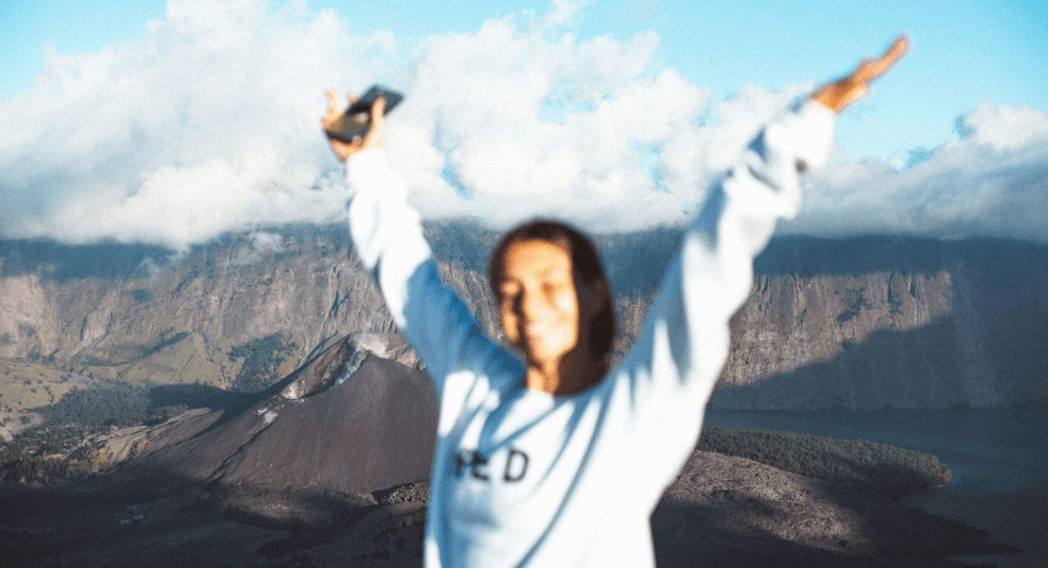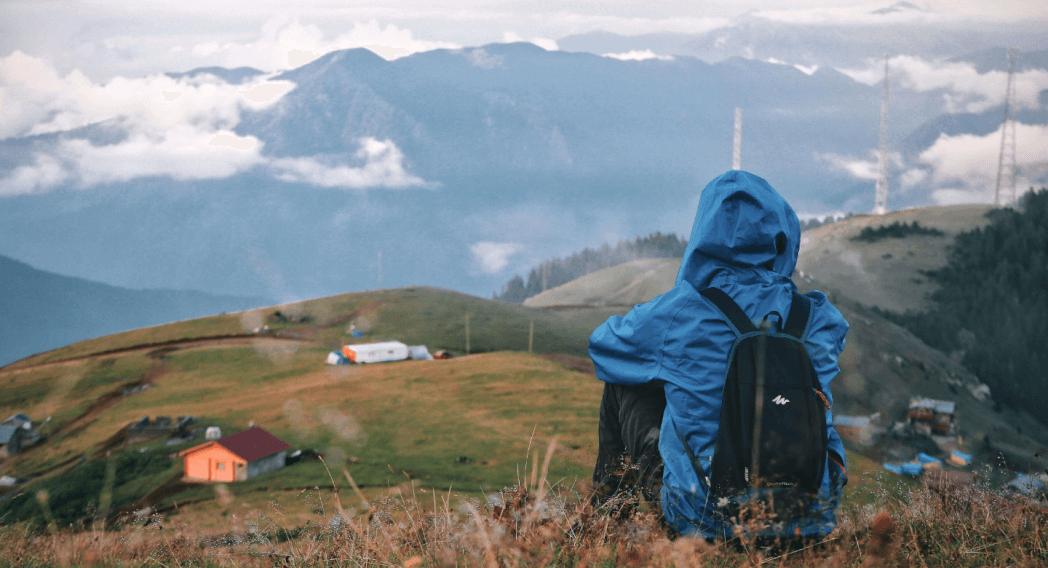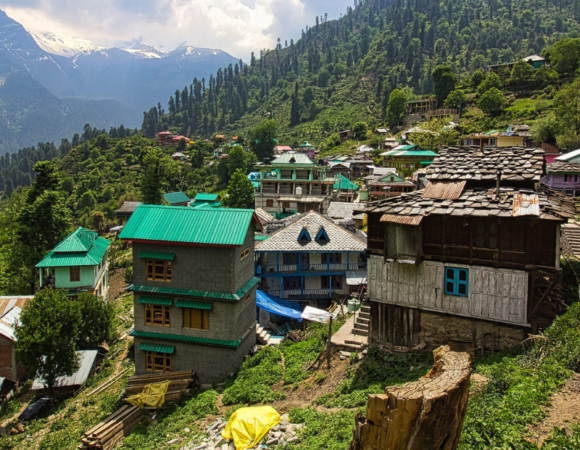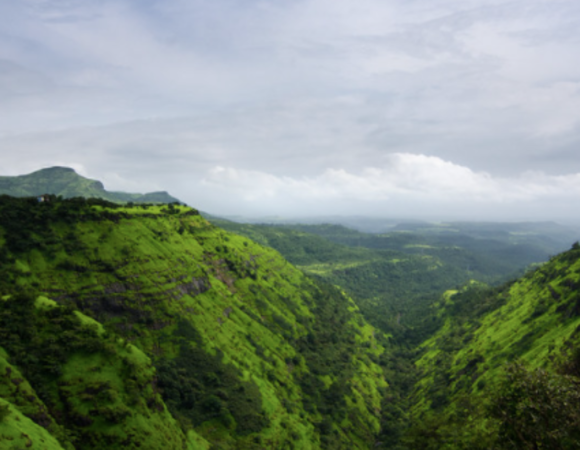How Trekking Positively Affects Mental Health
Discover how trekking positively affects mental health by reducing stress, boosting mood, and enhancing overall well-being. Explore the mental benefits of connecting with nature through trekking.
Table of Contents
ToggleIn today’s fast-paced world, mental well-being has become more important than ever. Trekking, an adventurous yet peaceful activity, offers a natural remedy for stress, anxiety, and mental exhaustion. Whether you’re walking through lush green trails or conquering mountain peaks, trekking provides a powerful escape from daily life. It allows you to reconnect with nature, clear your mind, and experience a sense of accomplishment that boosts confidence and happiness. In this blog, we’ll explore how trekking positively impacts mental health and why it should be a part of your self-care routine.
Benefits of Trekking for Mental Health

1. Stress Reduction and Anxiety Relief
Trekking positively affects mental health by offering a break from daily stress and worries. The fresh air and scenic landscapes create a calming effect, helping you feel more relaxed. Physical activity during a trek releases endorphins, the body’s natural stress relievers, making you feel lighter and happier.
2. Boosting Mood and Combating Depression
Spending time outdoors while trekking can lift your spirits and fight feelings of sadness. Exposure to sunlight helps balance your body’s natural rhythms and boosts vitamin D, which is linked to better mood. The sense of achievement after completing a trek can bring confidence and joy.
3. Improved Cognitive Function
Trekking challenges your mind as much as your body, sharpening your focus and problem-solving skills. Navigating trails and adapting to the terrain helps improve concentration. It also clears mental fatigue, leaving you refreshed and energized.
4. Connection with Nature and Mindfulness
Being in nature encourages you to slow down and be present in the moment. Trekking positively affects mental health by reducing mental clutter and bringing a sense of clarity. It also deepens your connection with the environment, making you more mindful and appreciative.
5. Building Resilience and Mental Strength
Overcoming challenges on a trek helps build inner strength and a positive mindset. It teaches patience and adaptability, showing that persistence leads to success. Each step forward reinforces your resilience and boosts your self-confidence.
Psychological Benefits of Trekking

1. Increased Self-Esteem and Confidence
Trekking positively affects mental health by giving you a sense of achievement with every step you take. Conquering trails and reaching new heights builds confidence and encourages you to embrace new challenges. Over time, it can improve how you see yourself, making you feel stronger both mentally and physically.
2. Social Connection and Emotional Well-Being
Trekking offers a chance to connect with others in a meaningful way, whether through shared laughter or deep conversations. The bond formed during a trek creates lasting memories and a sense of belonging. Support from fellow trekkers helps combat feelings of loneliness and fosters emotional well-being.
3. Emotional Release and Catharsis
Nature provides a safe space to reflect and process your emotions without distractions. Trekking allows you to step away from daily pressures and reset your mind. The combination of movement and fresh surroundings helps restore emotional balance and inner peace.
Tips to Maximize Mental Health Benefits While Trekking

- Choose Scenic Routes:
Trekking positively affects mental health when you surround yourself with nature’s beauty. Pick trails with stunning views, calming sounds, and peaceful surroundings to enhance relaxation and boost your mood. Scenic routes can make the experience more refreshing and fulfilling.
- Practice Mindful Walking:
Turn your trek into a meditative experience by focusing on each step and breath. Pay attention to the rustling leaves, chirping birds, and the feel of the ground beneath your feet. Mindful walking helps clear your mind and brings a sense of inner peace.
- Disconnect from Technology:
Take a break from screens and notifications to truly connect with nature. Limiting phone use allows you to be present, reducing stress and increasing awareness of your surroundings. Let nature be your source of entertainment and inspiration.
- Trek with Purpose:
Set small goals along your journey, whether it’s reaching a viewpoint or improving your stamina. Achieving milestones gives you a sense of accomplishment and boosts self-confidence. Purposeful trekking keeps you motivated and engaged
- Stay Hydrated and Nourished:
Keeping your body fueled with water and healthy snacks is essential for both physical and mental clarity. Proper hydration and nutrition help maintain energy levels, prevent fatigue, and keep your mind sharp. A well-nourished body supports a positive and enjoyable trekking experience.
Conclusion
Trekking positively affects mental health in many ways, from reducing stress and boosting mood to enhancing self-esteem and emotional well-being. It provides a unique opportunity to disconnect from daily stressors, reconnect with nature, and build resilience. Whether you’re trekking alone or with others, the experience can leave you feeling refreshed, accomplished, and more in tune with yourself. So, lace up your boots, hit the trails, and embrace the mental health benefits that trekking has to offer!
Read More About Importance of BMI for choosing a trek
References
Nick. (2024, August 11). How Nature trekking Boosts mental health and Wellness | ECC Adventures. ECC Adventures.
Joe Miller,bcbsnc:bio/joe-miller. (n.d.). Hiking can improve mental health | Blue Cross NC.
Frequently Asked Questions (FAQs) on How Trekking Improves Mental Health
How does trekking help reduce stress and anxiety?
Trekking helps lower stress and anxiety by immersing you in nature, promoting relaxation, and releasing endorphins through physical activity.
Can trekking help with depression?
Yes, trekking can improve mood by increasing serotonin and dopamine levels, providing a sense of accomplishment, and exposing you to sunlight, which boosts vitamin D.
Does trekking improve focus and concentration?
Absolutely! Trekking enhances cognitive function by engaging problem-solving skills, improving focus, and reducing mental fatigue.
How does trekking encourage mindfulness?
Being in nature encourages you to be present, focus on your surroundings, and practice mindful breathing, helping to clear mental clutter.
Is trekking alone or with a group better for mental health?
Both have benefits—solo trekking allows self-reflection, while group trekking fosters social connections and emotional support.
How can I maximize the mental health benefits of trekking?
To get the most out of trekking, choose scenic routes, practice mindful walking, disconnect from technology, set goals, and stay hydrated.
Can trekking boost self-confidence?
Yes, completing challenging treks and achieving milestones can significantly boost self-esteem and confidence.
How often should I trek to see mental health benefits?
Even trekking once a month can have positive effects, but regular treks (weekly or bi-weekly) can offer long-term benefits.
What should I do if I feel overwhelmed while trekking?
Take deep breaths, slow your pace, and focus on small goals to stay grounded and regain control of your emotions.
Can trekking be a form of therapy?
Yes, trekking is often considered a form of eco-therapy, as it combines physical exercise with nature’s therapeutic effects to improve mental well-being.





[…] Read More About: How Trekking Positively Affects Mental Health […]